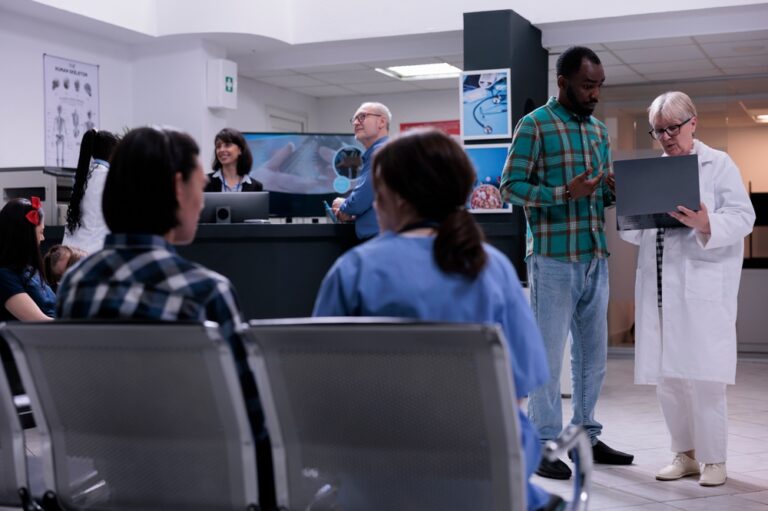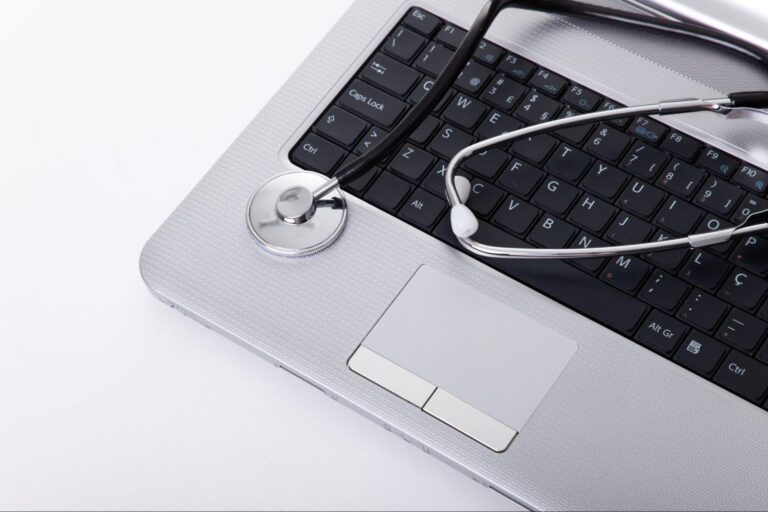Letting go of a “well-used” product can be stressful. Most people — including me — aren’t always excited about a change because it often means learning something new and a big learning curve. If you’ve ever had to purchase a new smartphone or computer, you know what I mean.
Many healthcare providers, especially small-to-medium-sized practices, are hesitant to upgrade to new technology, even when they know it will offer them more benefits and an increased competitive advantage. It’s the old “if it ain’t broke, don’t fix it” adage.
The average life expectancy for phone systems using private branch exchange (PBX), analog landlines or combining analog with Voice over Internet Protocol (VoIP) is only five years. About half of the businesses in the United States use outdated phone systems, many of which become increasingly unreliable over a five-to-10-year period. Only about 20 percent of U.S. businesses utilize advanced VoIP phone systems.
If you don’t think what phone system you use matters, think again. A recent survey found that 90% of respondents would consider switching to a competitor if the company they are dealing with uses outdated technology. This was largely due to security, privacy, and ease of use concerns. This is not to mention outdated technology’s negative impact on employee satisfaction.
How do you know when to upgrade to a new phone system, or what options you have for doing so? Check out our list of three signs it’s time to upgrade your communications system, and learn how a cloud-based, HIPAA-compliant phone system provides your practice with the scalability and reliability you need — all while reducing costs.
1. You can’t integrate your current system with mobile devices.
Let’s face it — most U.S. adults own a smartphone and prefer to use it to communicate with their healthcare providers. As we mentioned in a previous blog, more than 95 percent of patients prefer texting for healthcare communication.
In addition to costing both existing and new patients, an outdated phone system doesn’t allow you and your employees to communicate with your patients or each other away from the office. More than 4.7 million individuals in the U.S. work remotely at least half the time, and adapting to this trend through technology is a big part of recruiting and retaining valuable staff members.
With the emergence of healthcare consumerism, patients expect to be able to communicate with their healthcare providers outside of typical office hours. If they regularly have to wait a day or two to be able to reach your office, chances are they’ll switch to a different provider.
Cloud-based HIPAA-compliant phone systems can be integrated with your practice’s various other technology platforms and mobile and remote communication forms, including texting, emailing and faxing. No more losing calls when attempting to transfer them to a mobile device, and no more missed calls and messages when you and your staff are away from the office.
2. Your current phone system doesn’t grow with your business.
Unless you really don’t want to grow your practice, you need technology that scales as your practice does.
Think about it…Is your staff regularly missing calls? Are your patients put on hold for minutes at a time? Do you have to pay for a new phone every time you add a staff member?
If you answered “yes” to any of these questions, your current phone system isn’t scalable. You shouldn’t need to purchase additional hardware or expensive à la carte features and functionality as your business expands. Doing so can be costly and put you at a competitive disadvantage with practices utilizing advanced technology.
HIPAA-compliant VoIP phone systems for healthcare customers allow you to quickly and cost-effectively add and remove lines, extensions and features as needed while enabling you to communicate across multiple platforms and devices. Plus, upgrading to a modern telecommunication platform also gives your patients a positive first impression while reducing the administrative burden for you and your staff.
3. You’re tired of paying for routine maintenance on your outdated phone system.
If you have a phone system at least 10 years old, chances are you or one of your staff members has spent more than a few minutes arranging for maintenance or attempting to locate a part for it. Maybe a few buttons on your phone don’t respond when pressed, or there’s static on one of the phone lines.
These issues can be very frustrating for patients and staff members alike. Along with resulting in poor call quality, they typically require troubleshooting from your IT department or a call to the manufacturer for repair solutions. In a worst-case scenario, your outdated phone system stops working altogether, meaning your practice is probably losing revenue.
Discontinued manufacturer support, regular maintenance fees, a lack of potential upgrades and difficult-to-locate parts combine for costs that aren’t necessary, especially when you can implement a HIPAA-compliant phone system that offers the latest technology. You don’t have to continue to pay for extra services or purchase new hardware that quickly becomes outdated. Also, cloud-based systems don’t require downtime for you to install upgrades.
The Advantages of an Updated Phone System
These aren’t the only problems resulting from using an outdated communications platform. Most non-VoIP phone systems require you to pay lease line charges and fees for long-distance calls. They also aren’t equipped to handle PHI, comprising the security and privacy of your patients — and your practice.
HIPAA-compliant phone systems eliminate those fees and offer lower startup costs. These cloud-based platforms have been found to save as much as 45 percent per month compared to traditional phone services.
Another benefit of VoIP communications systems designed for healthcare practices is their ability to streamline faxing capabilities, a function most healthcare provider organizations still frequently utilize. At RingRx, our phone system lets you send or receive HIPAA-compliant faxes from anywhere. It offers both machine and web faxing with a contact directory that helps make faxing to your regular recipients faster and more reliable.
We offer a customized and scalable solution for every practice size, from solo practices all the way to hospitals and health systems. Start a free 14-day trial of RingRx today to see for yourself how utilizing an updated phone system can benefit your practice.





